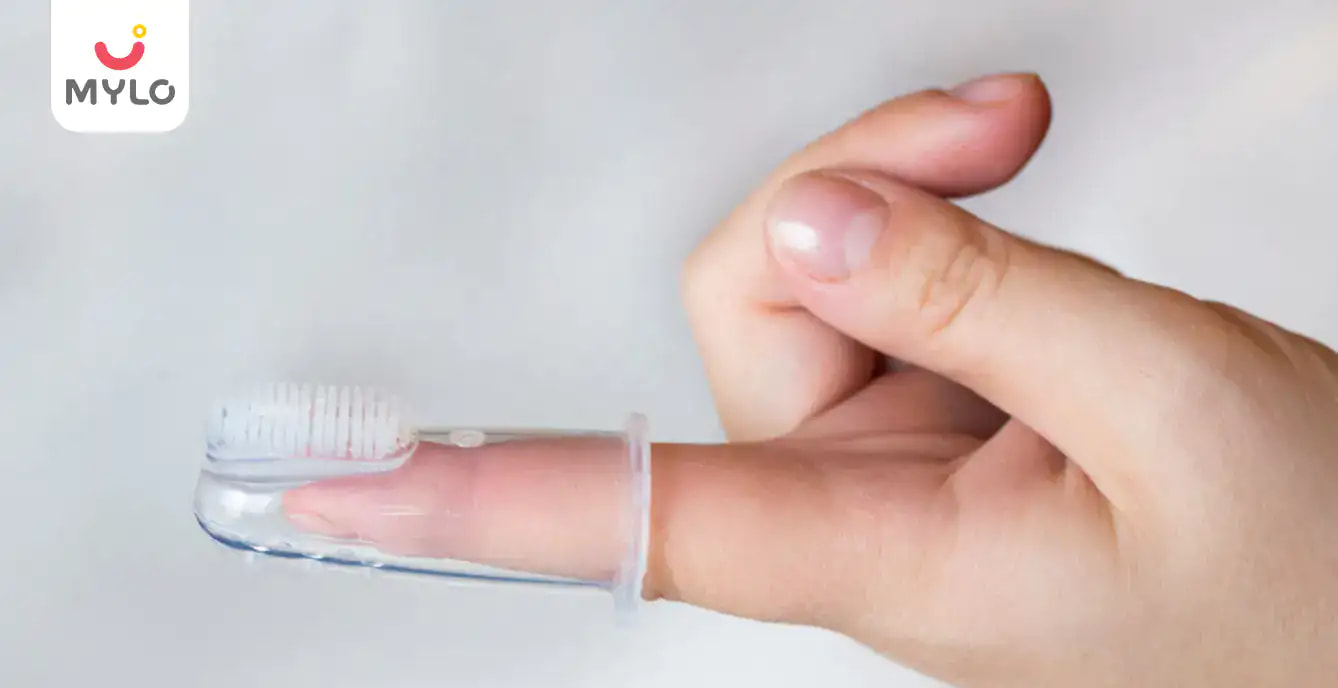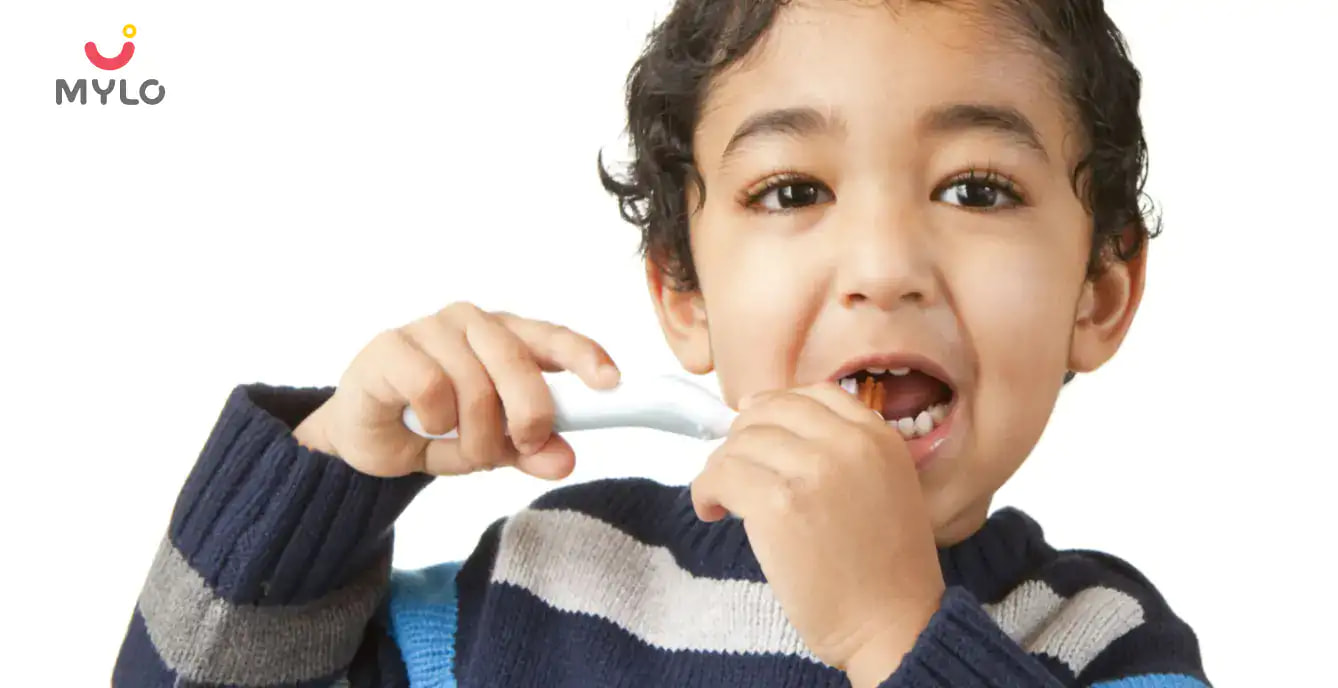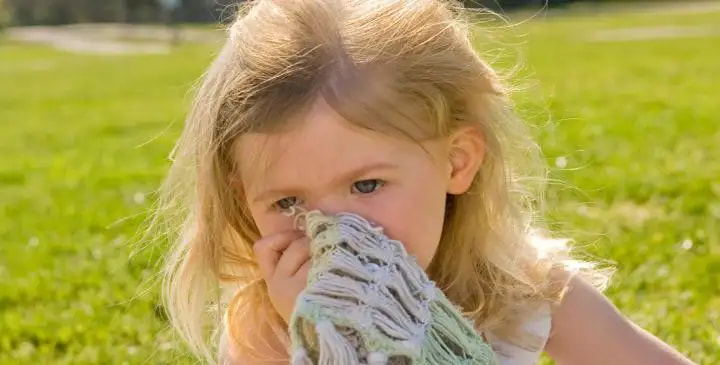Home

Teething

Don't Fall for These 7 Common Teething Myths
In this Article

Teething
Don't Fall for These 7 Common Teething Myths
Updated on 23 May 2024
Parenting is a tough job especially with myths and misconceptions floating all around. Just when you are excited about your baby’s first tooth, a wave of anxiety peeps in largely due to old wives’ tales you have heard so far. In this article, we will enlighten you with some of the most commonly prevalent myths around teething and split up facts from fiction.
With new breakthroughs in science, there is a deeper understanding about the growth and development of a child. As parents, it’s easier said than done to dismiss traditional beliefs whether it is about fever during teething or loose motions during teething. Read the article to understand what science says for these myths and misconceptions.
7 Myths About Teething and The Truth Behind Them
Teething refers to a process in which the baby’s primary or milk teeth appear. Although parents are parents excited about clicking pictures with the little tooth, the process comes with a humble share of challenges as well.
This developmental milestone is often linked with some traditional myths and misconceptions which can leave the new parents scratching their heads. Let’s debunk some common myths about teething such as:
Myth #1: It’s common to get fever during teething
It is a common misconception regarding fever while teething. However, there is no scientific data to prove this association. Some babies experience a slight increase in body temperature during the eruption of the first tooth. It is generally a low-grade fever and is not a cause for any concern.
Pediatric dentists believe that fever over 100.4-degree Fahrenheit is not linked to teething or referred to as teething fever and should require proper evaluation by a medical team for proper diagnosis and treatment.
Myth #2: Teething diarrhea is real
Another common misconception is around loose motion during teething. Some parents observe changes in the bowel movement of the baby during teething, however, there is no conclusive research to support the claim.
Having said that, it is important to be extra careful to maintain proper hygiene as the baby is more inclined to put everything in its mouth to soothe the irritation. Consult your doctor if the symptoms persist as it might be due to stomach infection.
Myth #3: There is a specific baby teething age
Parents get a little fussy over trivial matters such as teething age and start getting worried if it crosses that bracket. Many parents are adamant that teething begins at six months, despite the timing of teeth eruption varying for each baby.
You will be surprised to know that some babies may get their first tooth as early as three months while others have to wait till their first birthday. The best practice is to cross the bridge when it comes, which means to focus on your child’s individual development instead of expecting a structured timeline for different milestones.
You may also like: Baby Milestones for Development, Growth & Health in the First Year
Myth #4: Teething causes ear infections
One common myth which floats across different cultures is that teething may cause ear infections. It is important to remember that ear infections may occur at the same time as teething, but tooth eruption does not directly cause them.
The discomfort and irritation may make your child overly fussy or cranky which may occur around the same time as ear infection. The rule of thumb is to talk to your doctor to understand the underlying cause of ear infection for timely interventions.
Myth #5: All babies experience same teething symptoms
There is a general connotation that all babies experience similar teething symptoms. Teething is one of the most important milestones in a child’s development journey, but the symptoms can largely differ from one baby to another. At times, some babies encounter only mild symptoms while others experience a full spectrum of symptoms.
The common teething symptoms include irritation, excessive saliva production or drooling, gum swelling or tenderness, inclination to chew objects, and alterations in eating patterns.
You may also like: A Parent's Guide to Teething Symptoms, Age, Chart & Remedies
Myth #6: Teething remedies work the same for all babies
Another misconception is that the teething remedies work the same for all babies. What worked for your friend’s baby might not bring the same results in your baby. As some kids experience fever during teething while others don’t, the effectiveness of remedies also vary for every child. It is best advised for parents to be patient and explore which options work well for their baby.
You may also like: Home Remedies for Teething Babies That Really Work
Myth #7: Teething toys must be frozen
One general notion is that teething toys should be frozen. The general advice is you can put the teethers in the refrigerators as a little blast of cool might soothe the discomfort and make the baby feel better. Freezing the teether or other toys makes them too hard and may burn your baby’s delicate gums. Moreover, the extra chill increases the risk of catching a cold or throat infections.
The Bottomline
Teething is an important milestone which requires extra hygiene practices and relaxing techniques for babies. Babies may experience some symptoms along the ride like discomfort, irritability, drooling, increased inclination to chew objects and changes in eating patterns. One piece of advice for parents is to not give in to myths and use their wisdom to support your baby through this developmental milestone.
References
1. Owais, A., Zawaideh, F., & Bataineh, O. (2010). Challenging parents' myths regarding their children’s teething. International Journal of Dental Hygiene
2. Yousif, M. K. (2020). Mothers’ false beliefs and myths associated with teething. Qatar Medical Journal

Teether for Kids PO2 - Ring + Hot Air Balloon
₹ 300

4.0
(783)


5074 Users bought



Written by
Madhavi Gupta
Dr. Madhavi Gupta is an accomplished Ayurvedic doctor specializing in Medical content writing with an experience of over 10 years.
Read MoreGet baby's diet chart, and growth tips

Related Articles
Related Questions
Influenza and boostrix injection kisiko laga hai kya 8 month pregnancy me and q lagta hai ye plz reply me

Hai.... My last period was in feb 24. I tested in 40 th day morning 3:30 .. That is faint line .. I conculed mylo thz app also.... And I asked tha dr wait for 3 to 5 days ... Im also waiting ... Then I test today 4:15 test is sooooo faint ... And I feel in ma body no pregnancy symptoms. What can I do .

Baby kicks KB Marta hai Plz tell mi

PCOD kya hota hai

How to detect pcos

Related Topics
RECENTLY PUBLISHED ARTICLES
our most recent articles
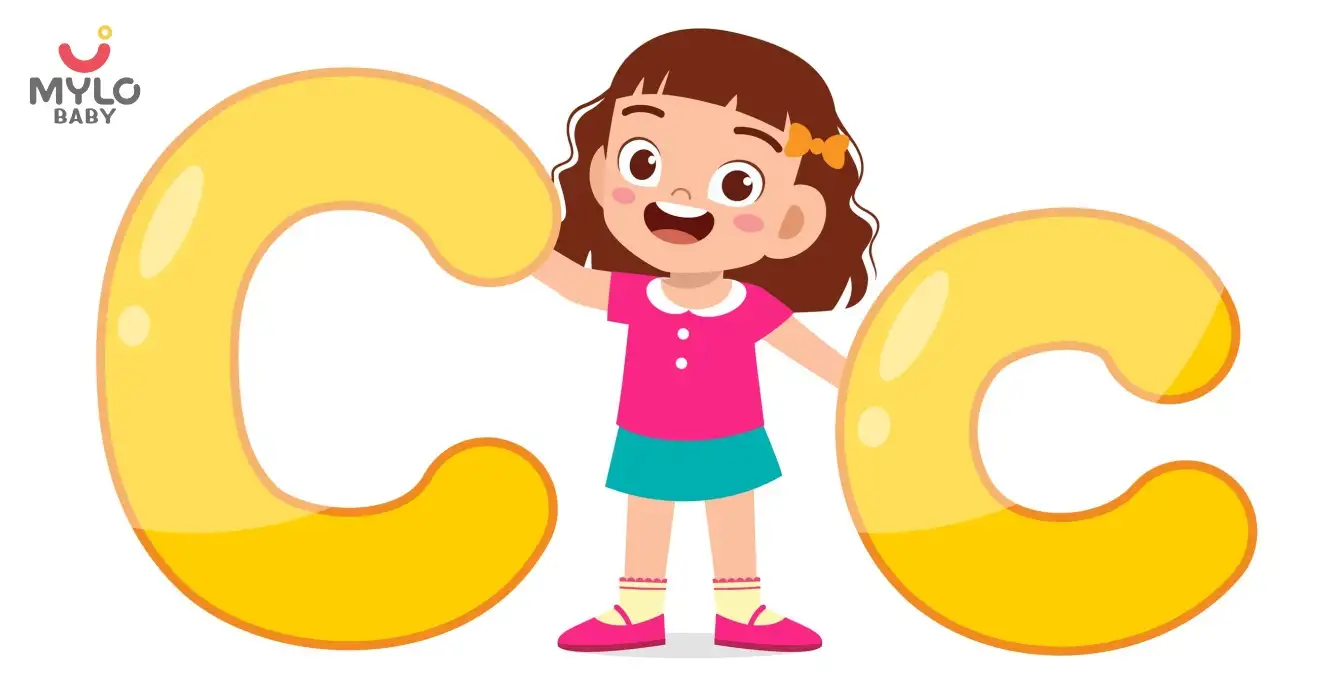
Early Education
100 Common Words that start with 'C' for Small Children

Early Education
List of 100+ Common Words that start with 'D' for Small Children
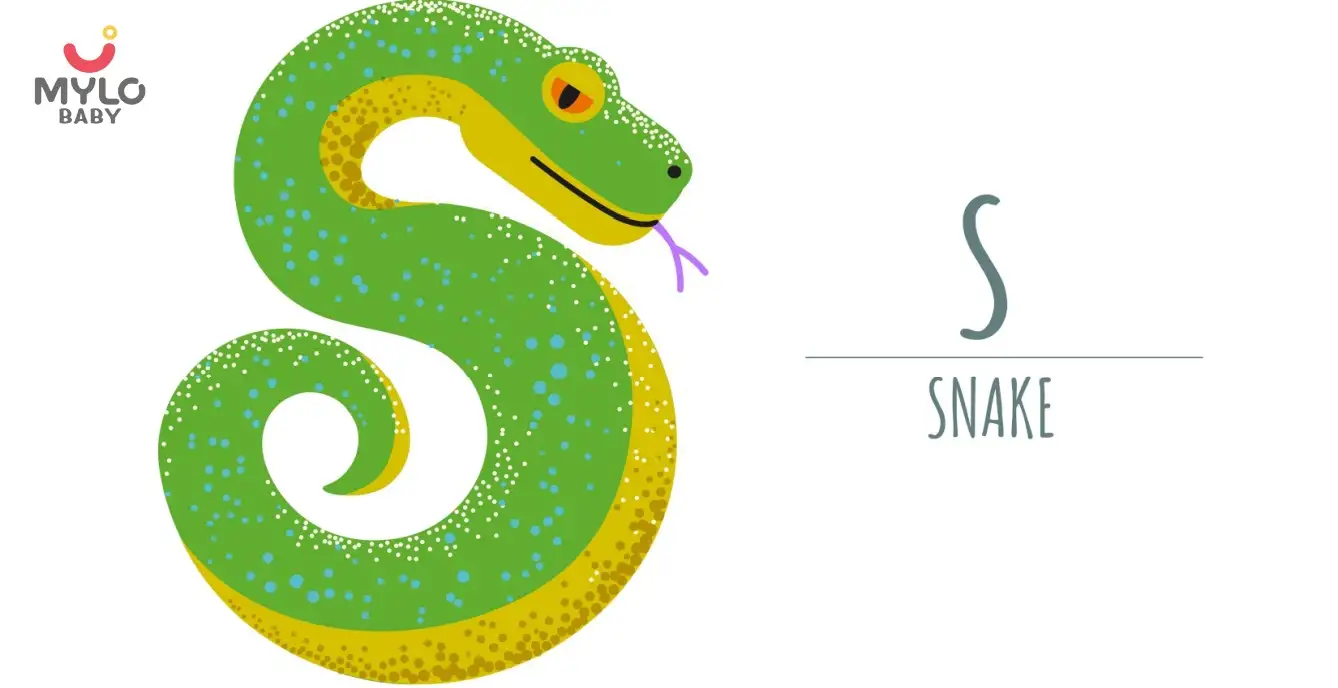
Early Education
100 Common Words that start with 'S' for enhancing vocabulary in small children

Early Education
List of Most Common Words that start with v for small children
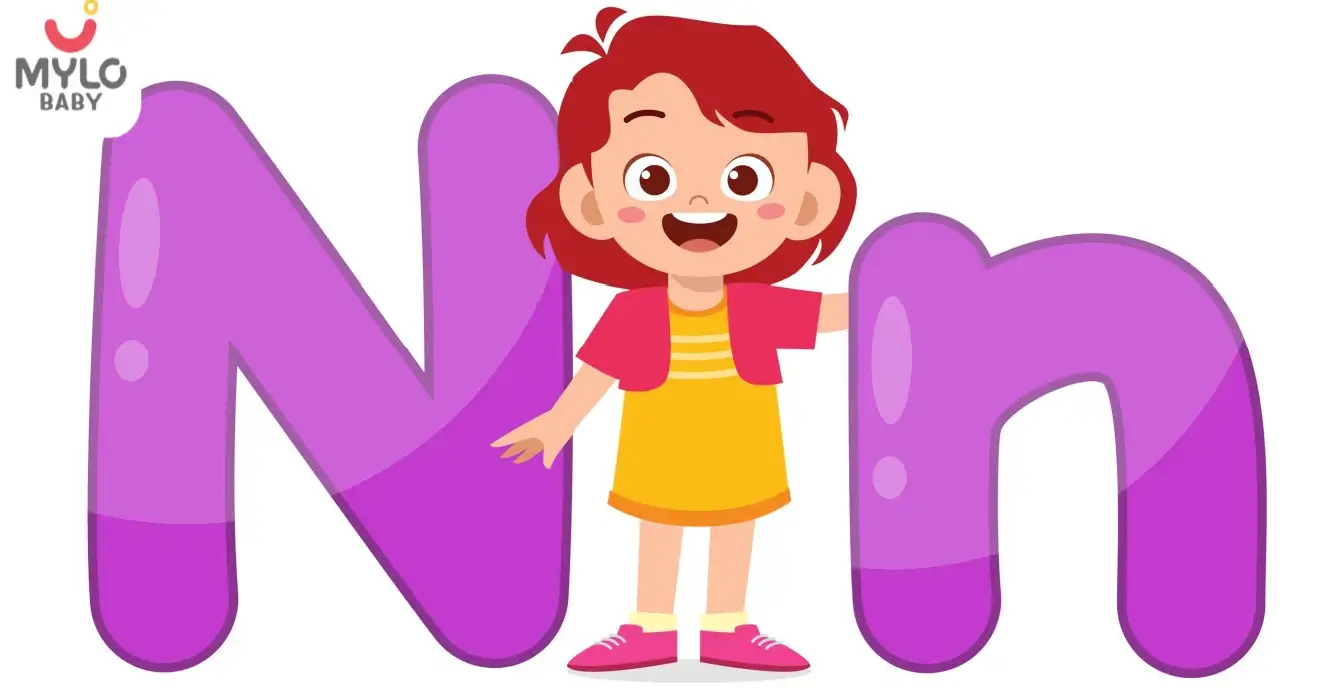
Toddler
Common Words that start with n for enhancing learning in small children
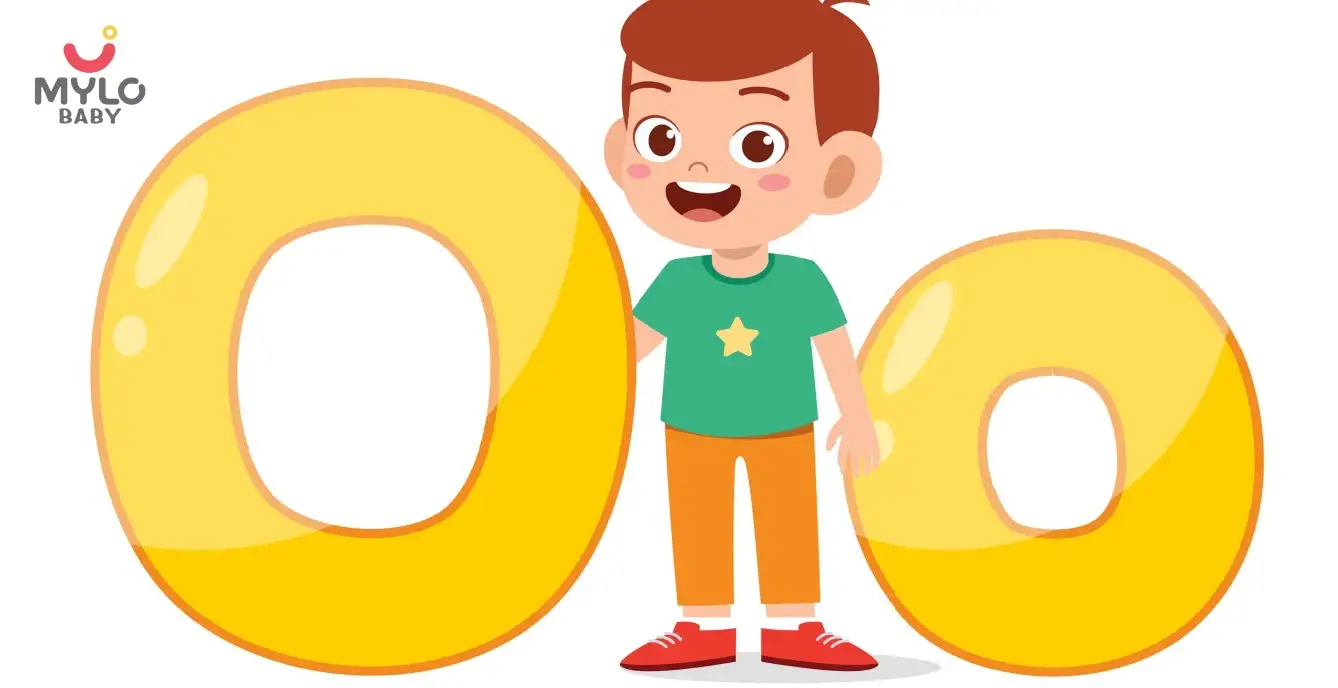
Toddler
Words that start with O for early learning in small kids
- 100 Common words that start with 'R' for Small Kids
- 100 Common words that start with 'U' for Small Kids
- Common words that start with Y for Vocabulary Enhancement in Small Children
- List of Common Q Words to Enhance Small Children's Vocabulary
- Common Maths Shapes and the Benefits of Teaching Shapes to Small Children
- Common Words that start with 'M' for Enhancing your Child's Vocabulary
- How to Stop Postpartum Bleeding Faster?
- Things to avoid in early pregnancy to avoid miscarriage
- Fat Vagina: Average Size, Types, Causes & More
- Most common animals that start with n for little children
- Animal Sounds Library for Making Young Children Learn
- Thyroid Cancer | Symptoms and Causes in Females
- Is It Safe to Indulge in Sexual Activity During the Third Trimester and What Can Be the Consequences of It?
- 100 Simple Words That Start With 'I' to Build Your Child's Vocabulary at an Early Age


AWARDS AND RECOGNITION

Mylo wins Forbes D2C Disruptor award

Mylo wins The Economic Times Promising Brands 2022
AS SEEN IN
















- Mylo Care: Effective and science-backed personal care and wellness solutions for a joyful you.
- Mylo Baby: Science-backed, gentle and effective personal care & hygiene range for your little one.
- Mylo Community: Trusted and empathetic community of 10mn+ parents and experts.
Product Categories
baby carrier | baby soap | baby wipes | stretch marks cream | baby cream | baby shampoo | baby massage oil | baby hair oil | stretch marks oil | baby body wash | baby powder | baby lotion | diaper rash cream | newborn diapers | teether | baby kajal | baby diapers | cloth diapers |




